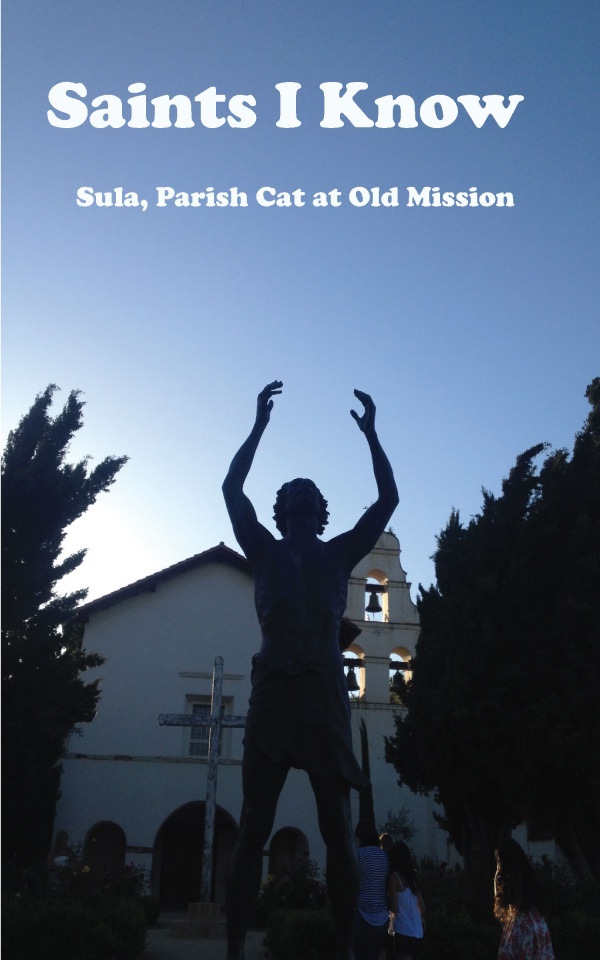Excerpt from Saints I Know (Sula, Parish Cat at Old Mission: Why Saints Are Important (by Deacon Van)
Excerpt:
Why Saints Are Important
by Deacon Van
All of the saints weren’t all those things all of the time, either. Like us, they weren’t perfect, but they had qualities that set them apart, that made them more willing—and more able—to come closer to his ideals. They all spent much of their lives serving others. Many of them gave their lives for their faith in God the Father, the Son, and the Holy Spirit: these are the martyrs whose sacrifices move us to honor their memory.
We don’t have to look very hard to find evidence of the historic and ongoing importance of saints. Think of some of our well-known cities: St. Louis, St. Paul, St. Augustine, San Antonio, Santa Barbara, San Diego. How many churches can you think of named after saints? (They aren’t all Catholic, either—Anglicans, Lutherans, and Methodists also name churches for saints.)
Then, there are patron saints, products such as St. Joseph aspirin for children, St. Christopher medals, and holidays such as St. Patrick’s Day and Valentine’s Day (named for St. Valentine, of course). If you have been confirmed into full communion with the Catholic church, what saint’s name did you choose to mark such an important occasion? (And on a less important note, if it weren’t for saints we wouldn’t have Halloween to celebrate: the name is shortened from All Hallows Eve, the night before All Saints Day.)
The Church doesn’t create saints. It simply recognizes people who seem to have been moved by the Holy Spirit to do the best they can to live as Christ teaches. So, we admire saints, we even venerate them, but we don’t worship them. We don’t pray to them; we ask them to pray for us just as we ask our family and friends to pray for us.
Some saints, like St. Augustine, led less-than-holy lives when they were young, then experienced some conversion event, repented of their sins, and devoted the rest of their lives to serving the needs of others and of the Church. Augustine made no attempt to hide his earlier transgressions; in his most famous work, Confessions of St. Augustine, he describes how badly he sinned before embracing God and the teachings of his Son but gives all of us hope: “There is no saint without a past, no sinner without a future.”
Like every other Christian, St. Augustine wasn’t perfect, but he was saved.

For more information about Saints I Know, click HERE.
For more posts about Sula and her books, click HERE.





Comments
Post a Comment